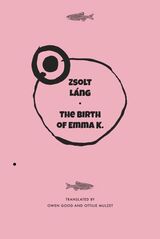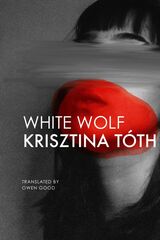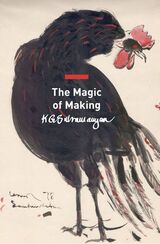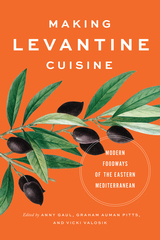
The Birth of Emma K., a collection of twelve short stories rich with magic, introduces English-language readers to one of the most vibrant and original voices in contemporary Hungarian literature. Zsolt Láng’s new collection opens with God sitting on a bench looking over Budapest; later, a Hungarian man who has stumbled into a Romanian music theory class suddenly finds he is able to speak expertly about Hungarian composer Béla Bartok—and in perfect Romanian; and even later, against all odds, the embryo of Emma fights for her future life from within the womb. Drifting between melancholic and witty, in sentences that are winding, subtle, and colloquial, Láng’s stories are deeply rooted in Transylvanian culture and history. Reminiscent of the best writings of Irish modernist masters such as Samuel Beckett and Flann O’Brien, The Birth of Emma K. presents an unforgettable collage of human nature.

What could bring people to form a mob and attack others? What circumstances could provoke a thirst for blood at the market square? Who will gang up to batter their neighbor, improbably returned from deportation? How can a person be swept up among lynchers?
Pál Závada’s novel examines and analyses the anti-Semitic mass hysteria and political opportunism surrounding the pogroms in Hungary that followed World War II and the Holocaust. In May 1946, at the village market, Mária Csóka witnessed a group of women set upon and beat to death a Jewish egg seller. The wife of a schoolteacher accused of anti-Semitic incitement, and daughter of a respected shopkeeper, Mária fears for her husband’s life yet cannot ignore the victims. The murderous fury spreads through the neighborhood like wildfire, dragging out women, children, and the elderly alike. Mária’s notes from the bloody day at the village market and from the subsequent trial in Budapest testify to a state of human relations that is intimately complex and irreparably scarred.

In Other Death, we are thrown into the chaotic life of a forty-year-old university lecturer who is experiencing a sudden, complete psychological and existential breakdown. Afternoons disappear and years chop and change in confusion as he wanders the streets searching for work. Homelessness, alcoholism, and hate are on the rise in 1990s Budapest as symptoms of the regime change. Images flash up from other lives: a Boer pointing a shotgun in Johannesburg, bodies heaped up in the downtown area, a Volkswagen campervan parked by an empty phone box in Switzerland. As he encounters new and historic traumas embedded in the lives and the buildings around him, the unnamed narrator struggles to grasp any coherent identity. It’s only when he starts to work as a gallery attendant, observing the interactions between viewer and artwork, light and space, that he embarks on the slow healing routine towards clarity.
In Barnás’s semi-autobiographical novel, meditations on trauma and urban space, image and observation, and spiritual friendships echo the writings of W. G. Sebald and Thomas Bernhard. Like Vertigo meets The Bell Jar, the magnetic language of Other Death draws the reader into the murky workings of a mind severely afflicted.

Three generations of a family of lawyers have run a firm founded in 1893 in the small city of Becskerek (today in Serbian Zrenjanin), first part of the Austro-Hungarian Habsburg monarchy, then Hungary, then Yugoslavia, then for a while under German occupation, then again part of Yugoslavia and finally Serbia. In the Banat district of the province of Vojvodina, the multiplicity of languages and religions and changes of place-names was a matter of course.
What is practically unprecedented, all files, folders and documents of the law office have survived. They concern marriages, divorces, births and testaments, as well as expulsions, emigrations, incarcerations and releases of these largely rural and small-town dwellers. Mundane cases reflect times through war, peace, revolution and counter-revolution, through serfdom and freedom, through comfort and poverty. The files also show everyday lives shaped in spite of history. Tibor Várady transforms them into affecting and vivid vignettes, selecting and commenting without sentimentality but with empathy. The law office of the three generations of the Várady family demonstrates that the legal profession permits and in difficult times even requires its members to defend the ordinary men and women against the powers of state and society.

Like stars in the sky, pixels may seem like tiny, individual points. But, when viewed from a distance, they can create elaborate images. Each pixel contributes to this array, but no individual point can create the whole. The thirty stories that comprise Krisztina Tóth’s book similarly produce an interconnected web. While each tale of love, loss, and failed self-determination narrates the sensuousness of an individual’s life, together, the thirty stories tell a more complicated tale of relationships. Circumstances that appear unrelated may converge in harmony or heartbreak, just as the events that loom largest may fail to produce a longed-for outcome. These threads often determine the course of lives in unpredictable ways—sometimes comic, sometimes tragic, but rarely in the ways we originally anticipated.

“Every home is a different story,” says one narrator in White Wolf while looking for her own childhood home. Every unhappy home is unhappy in its own way—and so are the stories in Krisztina Tóth’s new volume, in which the writer’s voice is darker and more radical than ever.
These are stories of trauma, oppression, submission, exclusion, stigma, and violence. Many of them tell of childhood abuses, unpunished crimes, lost children—suffering that goes without punishment, apology, and forgiveness. Her mostly nameless heroes are everywhere around us, stepping into the same elevator, running behind us on the staircase. Many of them are so wounded or tormented that they behave in strange ways. In White Wolf, Tóth observes these characters with acute sensitivity and attentiveness to detail.
READERS
Browse our collection.
PUBLISHERS
See BiblioVault's publisher services.
STUDENT SERVICES
Files for college accessibility offices.
UChicago Accessibility Resources
home | accessibility | search | about | contact us
BiblioVault ® 2001 - 2025
The University of Chicago Press









